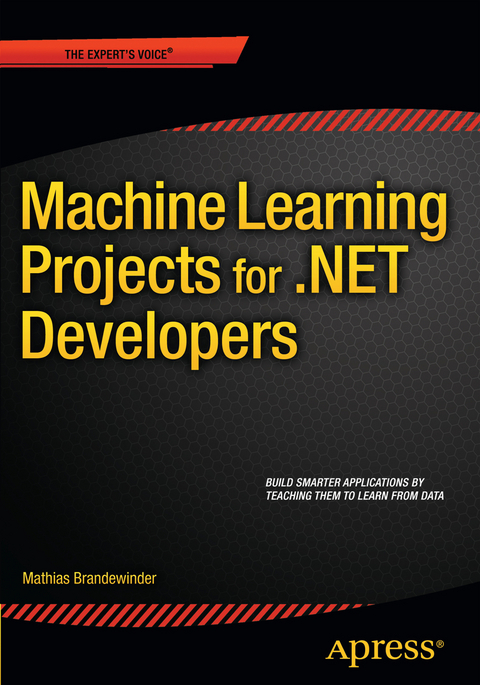
Machine Learning Projects for .NET Developers
Apress (Verlag)
978-1-4302-6767-6 (ISBN)
In a series of fascinating projects, you’ll learn how to:
Build an optical character recognition (OCR) system from scratch
Code a spam filter that learns by example
Use F#’s powerful type providers to interface with external resources (in this case, data analysis tools from the R programming language)
Transform your data into informative features, and use them to make accurate predictions
Find patterns in data when you don’t know what you’re looking for
Predict numerical values using regression models
Implement an intelligent game that learns how to play from experience
Along the way, you’ll learn fundamental ideas that can be applied in all kinds of real-world contexts and industries, from advertising to finance, medicine, and scientific research. While some machine learning algorithms use fairly advanced mathematics, this book focuses on simple but effective approaches. If you enjoy hacking code and data, this book is for you.
Mathias Brandewinder is a Microsoft MVP for F# based in San Francisco, California. An unashamed math geek, he became interested early on in building models to help others make better decisions using data. He collected graduate degrees in Business, Economics and Operations Research, and fell in love with programming shortly after arriving in the Silicon Valley. He has been developing software professionally since the early days of .NET, developing business applications for a variety of industries, with a focus on predictive models and risk analysis.
Chapter 1: 256 Shades of Gray: Building A Program to Automatically Recognize Images of Numbers
Chapter 2: Spam or Ham? Detecting Spam in Text Using Bayes' Theorem
Chapter 3: The Joy of Type Providers: Finding and Preparing Data, From Anywhere
Chapter 4: Of Bikes and Men: Fitting a Regression Model to Data with Gradient Descent
Chapter 5: You Are Not An Unique Snowflake: Detecting Patterns with Clustering and Principle Component Analysis
Chapter 6: Trees and Forests: Making Predictions from Incomplete Data
Chapter 7: A Strange Game: Learning From Experience with Reinforcement Learning
Chapter 8: Digits, Revisited: Optimizing and Scaling Your Algorithm Code
Chapter 9: Conclusion
| Zusatzinfo | 84 Illustrations, black and white; XIX, 300 p. 84 illus. |
|---|---|
| Verlagsort | Berlin |
| Sprache | englisch |
| Maße | 178 x 254 mm |
| Gewicht | 574 g |
| Themenwelt | Mathematik / Informatik ► Informatik ► Betriebssysteme / Server |
| Mathematik / Informatik ► Informatik ► Software Entwicklung | |
| Informatik ► Theorie / Studium ► Künstliche Intelligenz / Robotik | |
| Schlagworte | Künstliche Intelligenz • Maschinelles Lernen • Microsoft .NET |
| ISBN-10 | 1-4302-6767-4 / 1430267674 |
| ISBN-13 | 978-1-4302-6767-6 / 9781430267676 |
| Zustand | Neuware |
| Haben Sie eine Frage zum Produkt? |
aus dem Bereich


